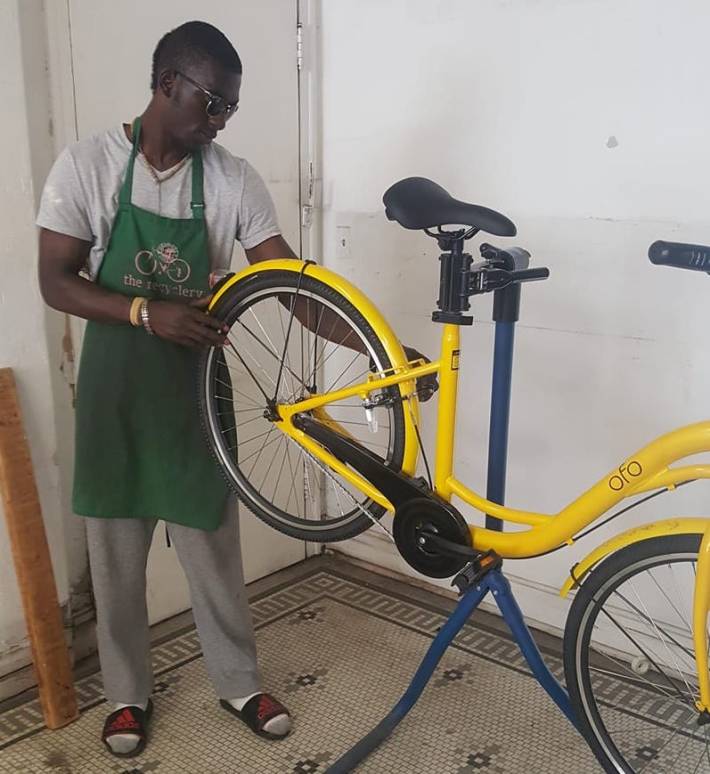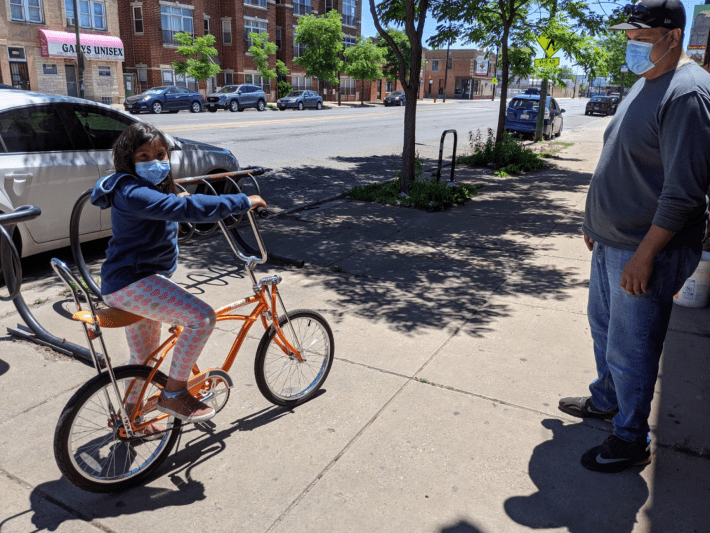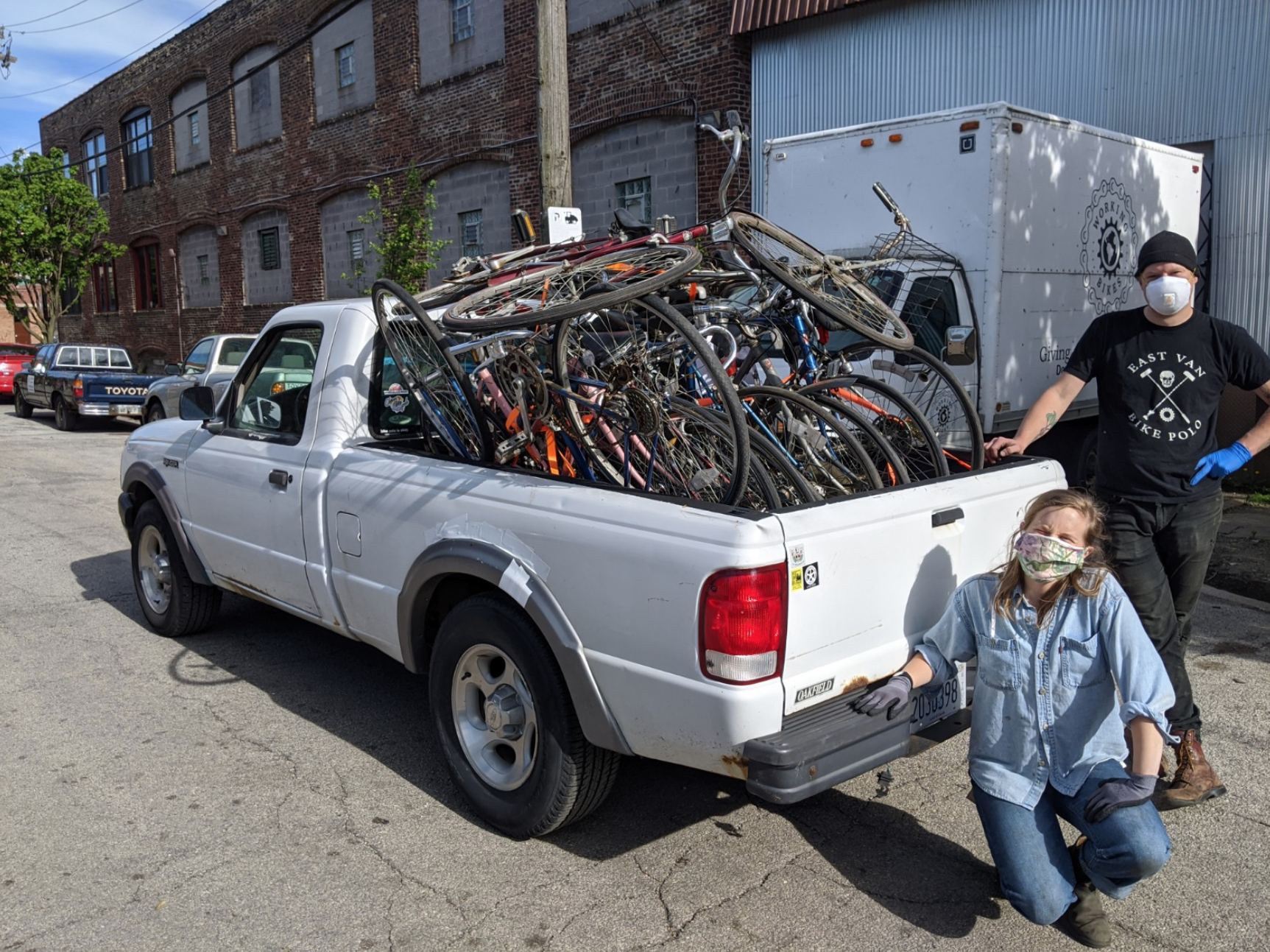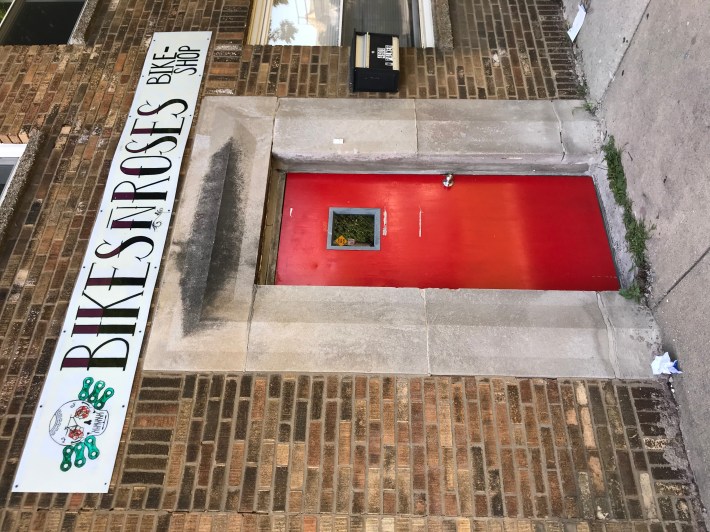In a world where normal travel patterns have been placed on hold, COVID-19 has created opportunity in the bicycle realm. Bike shops are overwhelmed with business, cities across the globe are repurposing major thoroughfares to allow for socially distanced transportation and recreation, and bike-share systems are experiencing large increases in ridership.
Nonprofit community bike shops exist to serve a different crowd than traditional bike shops. While many traditional bike shops focus on a relatively affluent customer base, community bike shops serve a much broader range of people, including low-income and working-class residents. Many of the people who rely on a bike to get around may not have the resources to purchase a bike or pay for expensive services. During the pandemic when residents may be facing income loss and wary of riding transit, community bike shops are more important than ever.
But COVID-19 has forced nonprofit shops to find new ways to operate. For some shops, the pandemic has prompted new strategies to meet the needs of the moment. But in many cases, the pandemic has also led to curtailed services. Cancelling events and programs, not allowing customer walk-ins, and limiting the number of staff and customers in shops has become the norm for community bike shops across Chicago.

In normal times, The Recyclery, located in the Far North Side community of Rogers Park, offers a variety of programs and services. The shop focuses on helping those in need by providing free bikes through partnerships with social service agencies, repair classes, open shop hours, and youth programming. However, these programs and services are paused for now.
Currently the Recyclery is adapting through social distancing and sanitation measures, socially-distanced engagement with volunteers, and a shift towards online sales. Bike sales are done via online scheduled pickups, with transactions taking place outside. The shop has also ramped up sanitation, and limits the number of people who may enter the storefront.
Online sales are helping to generate much-needed revenue. Since nonprofit bike shops often rely on volunteer labor, The Recyclery is working to keep its volunteers engaged. The current “Wrench from Home” initiative has volunteers fix donated bikes from the comfort and safety of their own homes, which will then be used for the "Freecyclery" bike donation program.
Bikes N’ Roses, located in the Northwest Side neighborhood of Belmont Cragin, is taking similar measures. Bikes N’ Roses is a community bike shop that focuses on youth programming and training. Normally, by providing local youth access to their full-service bike shop, the shop teaches young people workforce skills in a productive environment. However, suspending youth and volunteer programs and taking in customer bikes by appointment only was a necessary first step for ensuring pandemic safety.
“The challenges we are facing right now are mostly in the way of proximity: Our work has always had the need for a hands-on approach," said Bikes N’ Roses program director Mark Frens, noting that youth learn by doing and making mistakes. "It's hard to get volunteers and individuals excited about the shop who can't come into it.”
However, Frens added that if there is one silver lining to the pandemic, it’s that now is a great time to rethink our transportation choices and their impact. In addition to using this time for reflection, Bikes N’ Roses has been getting ahead on refurbishing bikes to donate to the local residents, including refugees.
In Humboldt Park on the West Side, West Town Bikes normally offers youth programming, mechanic classes, community events, and bicycle workshops. Due to the pandemic, West Town has suspended all in-person programming. However, its repair shop Ciclo Urbano is still operating at full force. Like other shops, West Town Bikes see the pandemic as an opportunity to not only use bicycles to build community, but to help keep neighbors safe by providing them with socially-distanced transportation.

On the Southwest Side, Working Bikes refurbishes bikes and distributes them to people in need, within Chicago and in developing nations. Throughout the years, Working Bikes has donated over 70,000 bikes worldwide. However, the nonprofit's warehouse and store is currently closed to the public. But Working Bikes is still doing online and curbside sales. They're also keeping their volunteers engaged by equipping them with bicycles and tools to do at-home tune ups and refurbishments.
So while business as usual is on hold for nonprofit community bike shops, they are adapting and changing their services to address their missions in this times of crisis.





